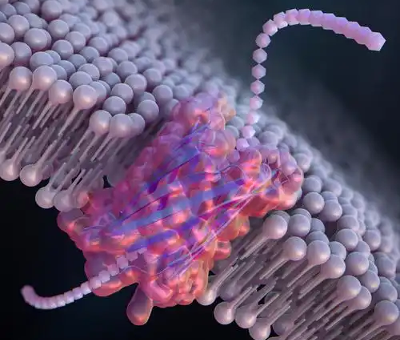Developing Protein based Artificial Neural Networks
January 7, 2025
Source: drugdu
 305
305
 Cells naturally process various classification cues, such as stress and developmental signals, to initiate cellular functions and produce different outcomes; Immune cells respond to threats based on detected signals; The p53 signaling pathway determines whether to repair damage or initiate self destruction to prevent cancer.
Cells naturally process various classification cues, such as stress and developmental signals, to initiate cellular functions and produce different outcomes; Immune cells respond to threats based on detected signals; The p53 signaling pathway determines whether to repair damage or initiate self destruction to prevent cancer.
Scientists have been working hard to create artificial systems that can replicate this decision-making process within cells. Most existing attempts rely on DNA or RNA, which require further translation into proteins to perform their functions, resulting in a slow and less direct process.
Recently, researchers from Westlake University and California Institute of Technology have not used DNA or RNA based systems, but have designed a fully protein based system in living cells, consisting of de novo designed protein heterodimers and engineered viral proteases to construct decision circuits that can process multiple signals and make decisions based on these signals. The research team named the system Perceptein, which is a combination of Perceptron and Protein. Perceptron is a basic artificial neural network concept that effectively solves binary classification problems by mapping input features to output decisions.
The paper was published on December 12, 2024 in the top international academic journal Science, with the title: A synthetic protein-level neural network in mammalian cells。 Researcher Chen Zibo from Xihu University is the first author and co corresponding author of the paper, and Xihu University is the first unit of the paper. The paper was previously published on the preprint platform bioRxiv in July 2022.
By combining concepts from neural network theory with protein engineering, "perceptual proteins" represent a biological system capable of performing classification calculations at the protein level, similar to basic artificial neural networks. This "perception protein" circuit can classify different signals and make corresponding responses, such as deciding whether to maintain survival or accept programmed cell death.
Chen Zibo obtained a First Class Honours Bachelor's degree in Life Sciences from the National University of Singapore in 2013. Obtained a Ph.D. in Biochemistry from David Baker Laboratory at the University of Washington from 2013 to 2018. From 2019 to 2022, I conducted research in synthetic biology at the Michael Elowitz Laboratory at the California Institute of Technology. During my time in David Baker's laboratory, I published one Nature paper (Programmable Design of Orthogonal Protein Heterodimers) and one Science paper (De novo Design of Protein Logic Gates) as the first author. Joined the School of Life Sciences at Xihu University in 2022 and established a biological programming laboratory.
In this latest study, the research team assembled six sensing protein components and two input proteins, which are necessary for a complete dual input dual output circuit. They chose two famous proteases - tobacco stripe virus protease and tobacco vein mottling virus protease - and fused them in a way that controlled protease cleavage and degradation.
By creating protein pairs that bind together in a specific way, these proteins arrange into a perceptual protein network, where some proteins activate themselves and inhibit others. This ensures that when multiple signals appear, only the strongest one triggers the response, while ignoring weaker signals, thus achieving a 'winner takes all' output.
This study demonstrates the feasibility of using synthetic proteins to construct circuits that simulate artificial neural networks in mammalian cells for complex signal classification. These circuits have potential application value in programmable therapies, where cells can respond to disease-specific signals and produce tailored outputs, such as selective cell apoptosis or other cellular responses. In addition, the study also suggests that interacting proteins can be utilized as a biology based artificial intelligence to construct complex computing systems.
Professor Michael Elowitz from the California Institute of Technology and Researcher Chen Zibo from Westlake University are the co corresponding authors of the paper, with Chen Zibo as the first author and Westlake University as the first affiliation.
Source: https://pharm.jgvogel.cn/c1479582.shtml
By editorRead more on
- Gan & Lee Pharmaceuticals’ new PROTAC drug GLR2037 tablets have been approved for clinical trials to enter the field of prostate cancer treatment March 3, 2026
- AideaPharmaceuticals plans to raise no more than 1.277 billion yuan through a private placement to focus on the global clinical development of innovative HIV drugs March 3, 2026
- Giant Exits! Its Star Business Acquired March 3, 2026
- Focusing on cardiovascular and cerebrovascular diseases! OpenMediLead Medical Intelligence Dual Engines Launch Internal Testing, Connecting Drug Development and Clinical Diagnosis in a Closed Loop March 3, 2026
- Innovent Biologics Announces Approval of New Indication for BTK Inhibitor “Pitubrutinib” in China March 3, 2026
your submission has already been received.
OK
Subscribe
Please enter a valid Email address!
Submit
The most relevant industry news & insight will be sent to you every two weeks.



